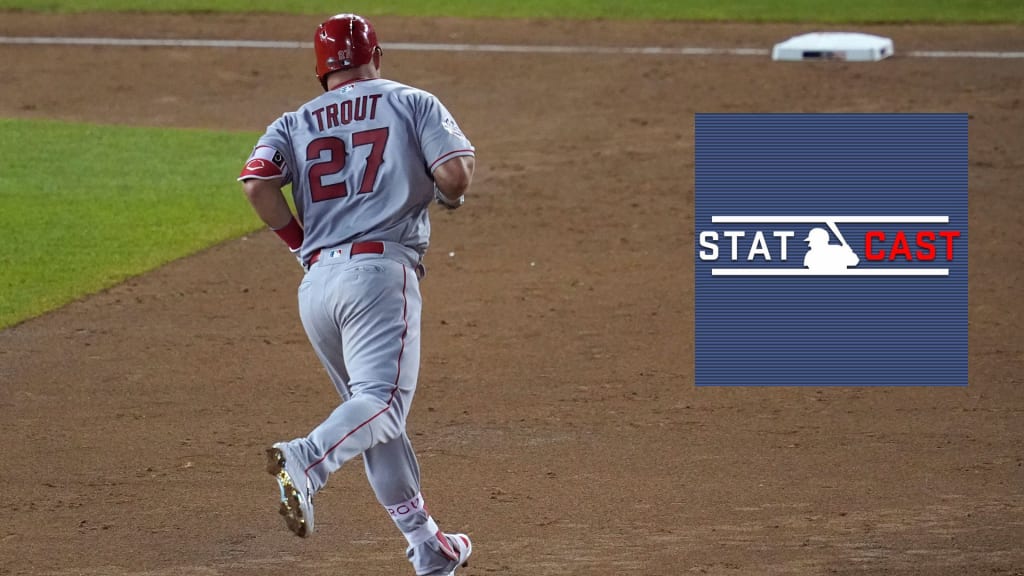
Every baseball decade has its own flavor, a way to establish it as a clearly delineated period of time, an era with its own distinct personality. We had the rough-and-tumble 1970s, with its off-the-field drama, its Bronx-Is-Burning real-life parallels of chaos, its seemingly endless amount of body hair. The '80s were the speed decade: Astroturf, Whiteyball, Rickey being Rickey. The '90s were heavy with import from start to finish, with labor strife knocking out a World Series but transitioning into the glories of Cal Ripken Jr. and the home run chase of 1998. The 2000s were the homer-happy decade, with records falling seemingly every year for reasons that are still being hotly debated today.
But what is this decade? 2019 marks the end of a decade in baseball -- it sure went by fast -- and as we enter its final year, the question must be asked: How will this decade be known?
I'd argue the personality of the 2010s can be summed up in one term: This was the Data Decade. This was the decade in which all the numbers and research and analytics and biometrics -- whose study had previously been pioneered by outsiders and obsessives and dreamers -- were corralled together and weaponized in a way that revolutionized the game and changed it forever.
All those outsiders became insiders, and all those insiders started making all the decisions. The data stopped becoming about the study of the game and began actively reshaping it. Those who got on board with the statistical revolution were able to ride it to new heights. Those who resisted it were left behind. The game looks entirely different than it did in 2010, in nearly every conceivable way. The data is the reason why.
Imagine what Lou Piniella, a manager of 23 years whose final season was in 2010, would think of what his job would entail today. It's not just the roster that the front office gives you; it's now the lineup. Your starters may now be relievers who begin games three times a week. Your best batter now hits second. Your bullpen is in constant flux and turmoil by design. Instant replay has essentially eliminated arguing with umpires. RBIs are considered meaningless by many, as are pitcher wins. Your defensive players are constantly shifting, sometimes from pitch to pitch. Oh, and you probably make less money than your GM now. Heck, no wonder the guy stayed retired.
How much has baseball changed? In 2010, the D-backs set an all-time record with 1,529 strikeouts for hitters, breaking the mark previously held by the '01 Brewers (1,399). In '18, 11 teams would strike out more than 1,400 times. In 2010, 45 pitchers threw 200 innings or more; in '18, that number was 13. In 2010, Roy Halladay had four shutouts; in '18, no pitcher had more than one. A lot can happen in a decade.
Think of all the terms that are a daily part of your baseball vocabulary that you'd never heard of in 2010. Launch angle. Exit velocity. Qualifying offer. Pop time. Opt-out clauses. Statcast™. Barrels. Catch probability. Wild Card Game. Spin rate.
You could have watched baseball your entire life, but if you have a curious mind, you've been able to learn more about the game in the last 10 years than you had in your whole existence up to that point.
That's data. That's why it's the Data Decade. The last decade has changed the sport in ways we're still coming to terms with, but it has also expanded our understanding of it, the better ways to win, the most efficient ways to organize your roster, the most training regimens to preserve your strength and maximize the consistency of your swing, or your throwing motion. Baseball has always been a sport that, because it is in large part played in solo, one-on-one fashion, easily lent itself to statistical study. But now we have better statistics. We have better data. And we're using it in ways that, all told, we should have been using all along.
Baseball styles ebb and flow: Some years pitchers dominate, some years hitters do, sometimes power runs the game, sometimes it's defense and speed. But what we've learned in the last decade has led to a better understanding of just how incredible what these players are doing on a daily basis truly is. You can have your legends of old men whispering about how long The Mick hit that ball; I'll take actually knowing precisely how hard and far Mike Trout hit this pitch.
We now watch baseball differently than we ever have because we know so much more than we ever have. And knowledge is never, ever a bad thing. The Data Decade made the players better, it made the teams better, it made the sport better, but perhaps more than anything, it made the fans better. If you love baseball, you've never had more access to it, to understanding it, to absorbing yourself in it, to appreciating it, than ever before. Isn't that what we want? Isn't that why we watch? That's where the Data Decade has taken us.
